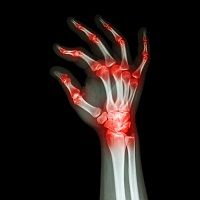Trial Shows Ixekizumab Effective Against Psoriatic Arthritis
Ixekizumab patients, who all started with an introductory 160-mg dose, were all more likely than placebo patients to achieve the primary endpoint of the study: a 20% reduction in disease burden as measured by American College of Rheumatology criteria (an ACR20 response) by week 24.

A phase III trial of the monoclonal antibody ixekizumab (Taltz) concludes that the drug is superior to placebo and suggests that it is very similar to adalimumab (Humira) for the treatment of psoriatic arthritis (PsA).
Investigators randomized 417 biologic-naïve patients to subcutaneous injections of ixekizumab 80 mg once every 4 weeks (N=107) or injections of placebo (N=106), adalimumab 40 mg (N=101), ixekizumab 80 mg (N=103) once every 2 weeks.
Ixekizumab patients, who all started with an introductory 160-mg dose, were all more likely than placebo patients to achieve the primary endpoint of the study: a 20% reduction in disease burden as measured by American College of Rheumatology criteria (an ACR20 response) by week 24. Only 30.2% of placebo patients achieved an ACR20 response compared to 62.1% of the 2-week ixekizumab group and 57.9% of the 4-week ixekizumab group (p≤0.001; non-responder imputation method).
The ACR20 response at 12 weeks, tested as a secondary end point, was also significantly greater in patients randomized to the 4-week ixekizumab group (57%) and the 2-week ixekizumab group (60.2%) compared to patients in the placebo group (31.1%) (p≤0.001).
“Disease activity and functional disability were significantly improved with both ixekizumab doses versus placebo at weeks 12 and 24, and there was significantly less progression of structural damage at week 24 (p≤0.01),” the study authors wrote in the Annals of the Rheumatic Diseases. “Clearance of plaque psoriasis was also greater with ixekizumab than placebo (p≤0.001).”
The trial was not powered to compare ixekizumab to adalimumab, but patients receiving both doses of ixekizumab responded very similarly to adalimumab patients. Indeed, after 24 weeks of treatment, a virtually identical percentage of adalimumab patients and 4-week ixekizumab patients achieved ACR20 responses, ACR50 responses (about 40% for both groups) and ACR70 responses (about 20% for both groups).
Reports of treatment-related adverse events were greater among both ixekizumab patients (66%) and adalimumab patients (64%) than placebo patients (47.2%). There were no instances of grade 3 or higher neutropenia, major cerebrocardiovascular events (cardiovascular death, myocardial infarction stroke, etc), interstitial lung disease, Pneumocystis pneumonia, Crohn's disease or ulcerative colitis in the ixekizumab-treated patients.
The most common problems in all 3 groups were injection site reactions, injection site erythema, and nasopharyngitis. Only 10 study patients discontinued because of an adverse event.
Ixekizumab is an immunoglobulin G4κ monoclonal antibody that selectively binds with and neutralizes cytokine interleukin (IL)-17A. It was approved by the US Food and Drug Administration earlier this year for the treatment of plaque psoriasis.
The new trial results are from the SPIRIT-P1 study, but they will not be the last results to emerge from the study. There is an extension period of up to 3 years designed to test the long-term safety and efficacy of ixekizumab.
There is also other research designed to assess how the drug works in different psoriatic arthritis patient populations.
“Given that the current study was restricted to patients who were naive to biologic therapy, the results cannot be generalized to treatment of patients with a history of failed therapy or loss of efficacy to therapy or intolerance to anti-tumor necrosis factor (TNF) agents,” the study authors wrote. “Evaluation of ixekizumab in patients with psoriatic arthritis with previous experience with biologic therapy is currently under investigation in the SPIRIT-P2 clinical trial.”